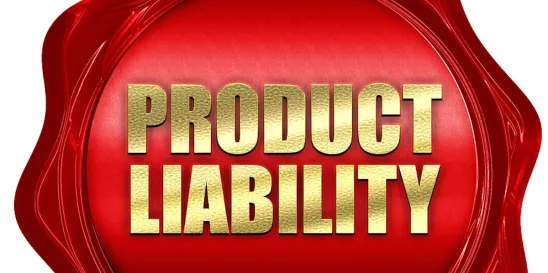The European Parliament’s Internal Market and Consumer Protection Committee (IMCO) and Committee on Legal Affairs (JURI) recently acted as a joint committee to discuss and vote on new amendments proposed by the European Union to replace its current directive on liability of defective products. There were 33 votes in favor, two against, and no abstentions.
5 Key Amendments in the Proposed Directive
Key amendments in the new directive, proposed on Oct. 9, that manufacturers doing business in the EU and importers should be aware of include:
1. Expanded Scope
The new directive expands the definition of “product” to include software, digital manufacturing files, and digital services. The definition excludes free and open software unless it is offered in exchange for a price or for personal data not exclusively used for improving the security, compatibility, or interoperability of the software.
Additionally, the new directive no longer limits the scope of “damage” to damages caused by death, personal injuries, or damage to property items. The new directive’s definition includes corruption of data, the cost of recovering and restoring the data, and medically recognized damage due to psychological health.
Moreover, defectiveness of a product will not be determined by referring to its fitness for use but to the lack of safety that an average consumer is entitled to expect and/or that is required by EU or national law.
2. Necessary Disclosures
The new directive obligates the manufacturer to disclose “relevant evidence that is at its disposal” in court (subject to trade secret protection and confidentiality) when an injured person has presented facts and evidence sufficient to support the “plausibility of the claim for compensation.” Pursuant to the new directive, defendants would also be entitled to request disclosure of relevant evidence.
3. Eased Burden of Proof for Plaintiffs
The new directive eases the burden of proof for the injured person by establishing a presumption of defectiveness and causal link under certain conditions.
Defectiveness is presumed when:
- A manufacturer fails to comply with the obligation to disclose information
- A product does not comply with mandatory safety requirements
- Damage is caused by an obvious product malfunction
A causal link is presumed when:
- Damage is typically consistent with the defect in question
- Technical or scientific complexity causes excessive difficulty in proving liability
4. Elimination of Property Damage Threshold and Extended Liability Period
The new directive removes the 500 euros minimum threshold for property damage claims. Additionally, while the EU’s proposal suggested extending the existing 10-year liability period for personal injury to 15 years, the joint committee extended the liability period to 30 years in cases where the symptoms of a personal injury are “slow to emerge” according to medical evidence (e.g., asbestosis).
5. Liability for Imported Products
When a product manufacturer is established outside the EU, the new directive would attribute liability for a product to the importer and the authorized representative of the manufacturer in the EU. If the importer and authorized representative in the EU are both based outside the EU, the fulfilment service provider will be held liable.
Reactions to the Proposed Directive
Following the committee vote, JURI Committee co-rapporteur Pascal Arimont said in a European Parliament press release “Like its predecessor, the revised Product Liability Directive aims to strike a balance between remaining an effective instrument for victims of defective products, and the legal certainty economic operators deserve in a fast changing market characterized by digitalization, the circular economy, and global value chains.”
In the same press release, IMCO Committee co-rapporteur Vlad-Marius Botoş said, “In the new Product Liability Directive, we have a balance between the interests of citizens and legal clarity for economic operators regarding software and the loss and corruption of data. In addition, people can get help from consumer protection agencies in building their case to obtain damages.”
Product Liability Directive Background
The current EU Product Liability Directive (Directive 85/375/EEC) dates back to 1985. The 1985 directive does not account for current technological advances, such as connected devices, software, or the circular economy. The European Commission published its proposal for a new directive in September 2022 in an aim to bring the EU’s product liability regime up to speed with the digital age. Preparation for the proposal began in 2018 with the evaluation of the directive, followed by expert groups, impact assessments, public consultations, and stakeholder workshops.
What Comes Next
The plenary of the European Parliament will vote on the amendments in November 2023. The amendments adopted by the plenary will serve as the basic document for the trilogue between representatives of the EU, the Council of the EU, and the European Commission, who will negotiate the final wording of the directive.






 />i
/>i

